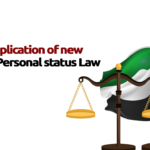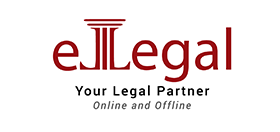
Family is an integral part of society as it is one of the most important social unit organizations that forms and shapes the society at large. As a unit, two people have to come together to form a family and as such they live together and acquire property and assets together or individually which can be directly and indirectly. In this article, you will be made to understand how parties in marriage or cohabitation get to own property together either directly or indirectly and how they acquire an interest in these properties and what becomes the implication.
OWNERSHIP OF FAMILY ASSETS
The co-ownership of land or property in marriage or possible cohabitation between you and your partner implies that such a property or land is held on trust. The trust may be implied or expressly created by the parties of the relationship. Another way in which a property may be held on trust is through proprietary estoppel.
The next part of this article will elucidate the various types and ways in which trust is created and what influences this trust.
- Express Trust
An express trust arises in two different situations which are;
A declaration of a trust made by the owner or
A transfer of the title of the property subject to a trust being created.
There are no special words that can be used to create a trust but there is an absolute need for an intention to create trust. For a trust to be enforceable, it must be re-affirmed or declared after which an oral agreement is made and also put down into writing.
- Implied Trust
For an implied trust to exist, there is no need for an explicit written declaration of the party’s intention, but rather the trust is inferred from the circumstances surrounding the property. The varieties of implied trust are two which are Constructive trust and Resulting Trust and they are explained below;
- Constructive Trust: For this type of trust to lead to an implied trust between the two parties, it arises in a situation where it would be unreasonable and unfair not to give effect to the intention between the parties of a relationship upon which they based their mutual expectation.
The three requirements that give rise to a constructive trust between two parties are;
- The presence of a bargain or common intention between the parties
- Either of the party must have relied on that common intention
- Unfair or unjust denial of a person’s right within the property.
What is Bargaining Element
Bargaining in a constructive trust may either be implied or express from the conduct of both parties. The types of the bargain and their implications are;
- Express Bargain
This implies that there is an existing agreement or arrangement between the parties that the property should be shared or used in a certain way.
- Implied Bargain
This is a bargain that is inferred from the actions of the parties. This usually happens where one party makes contribution for the purchase of the property or takes on some bills such as mortgage repayments.
- Resulting Trust
A resulting trust arises where it is presumed that a person contributes towards the purchase price of a property and makes them earn an interest in that property which is equal to the share they contributed. What counters this presumption away is where there is evidence of a contrary intention to that effect. The implication of one party contributing to the purchase of the property is that he gains interest in the property and the legal owner will hold the property on a resulting trust for the party who contributed to the purchase of the property.
- PROPRIETARY ESTOPPEL
This arises in a situation where one party assures the other party or convince them that they will have an interest in a particular property. The help of proprietary estoppel is to hinder the party who assured someone of having an interest in the property from acting against his promise. If proprietary estoppel succeeds in a court case, the court have a wide discretion in deciding which remedy can be applied .
Conclusion
It is important to clearly state terms between parties when it comes to acquiring and owning properties in order to define ownership and avoid disputes.
For all your questions on property needs, advise, compliance and legal requirements in Dubai UAE, please feel free to contact us for a free consultation. We are just a click away. We also assure you that we will tend to your requests.
We at eLegal consultants look forward to meeting you and ready to journey with you to realize your dreams. Contact us today.




